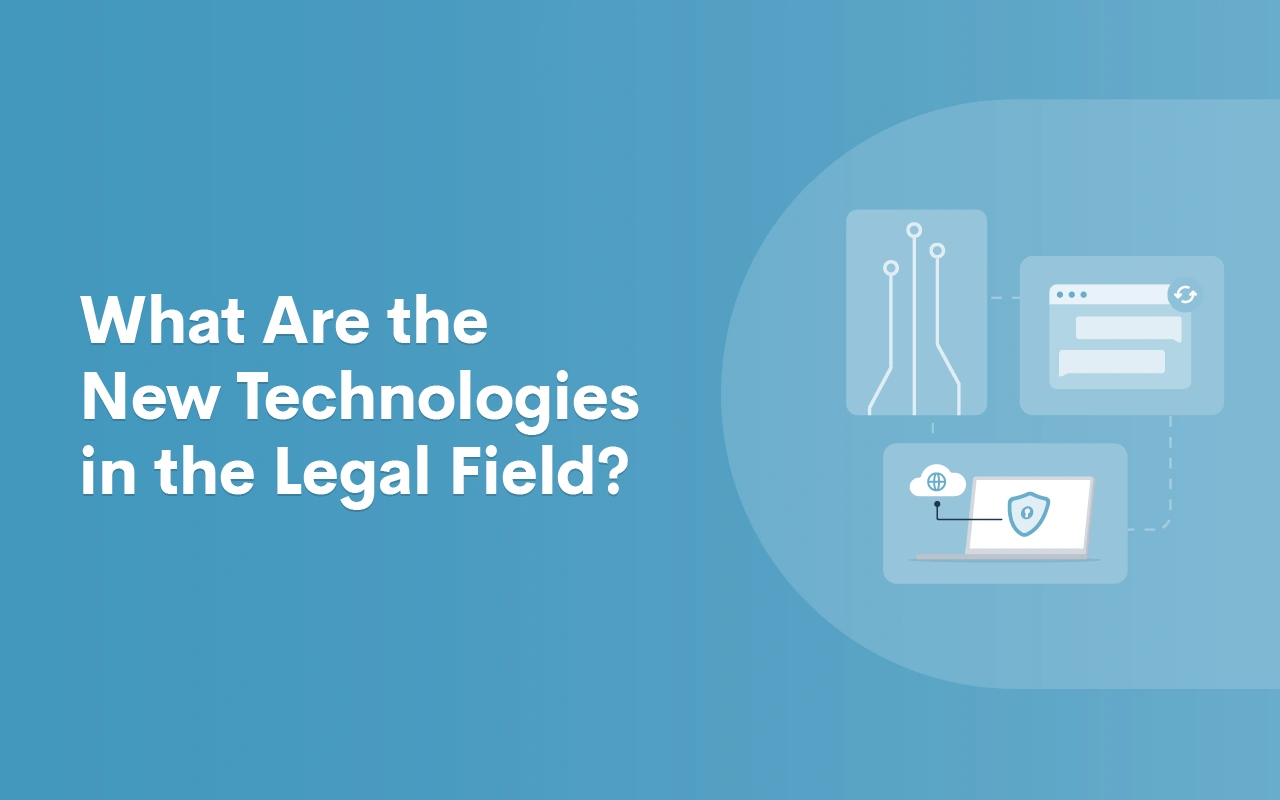What Are the New Technologies in the Legal Field?

Advances in legal software are rapidly transforming the future of legal technology. Solutions leveraging automation, AI, and cloud platforms are reshaping law practices of all sizes. But for small and mid-size firms, the most transformative innovations are tools that directly strengthen client relationships, service quality, and firm capabilities.
Small law firms occupy a unique position where owners must balance legal practice and business ownership. Integrating the right technology promises to augment both roles by improving efficiency, insight, and competitive differentiation. As technology permeates the legal field, small firms' nimbleness could become an advantage in actively adapting to changing client expectations faster than larger rivals.
New solutions democratize sophisticated capabilities, leveling the playing field. Lean small firms can deliver elite responsiveness and convenience by carefully integrating customer-focused technologies designed for legal teams.
Technology in law firms: a shifting landscape
Small law firms actively invested in technology integration to streamline operations, strengthen security, and satisfy rising client service expectations, according to The 2023 State of U.S. Small Law Firms Report. The report confirms that over 40% of small practices have recently adopted new solutions, with law-specific software and agile cloud platforms representing top focus areas and investment in the coming year.
As law firms accelerate tech investments, top solutions driving transformation include:
1Workflow automation: boosting productivity
Streamlining repetitive tasks from intake to billing via automation allows professionals to focus on high-value work. Reducing administrative workflows has been a major priority for law firms in the last few years, but there is still an opportunity to review billing processes. According to the ABA, only 52% of solo attorneys use time and billing software, and small firms aren't much better, with 66% leaning into the ease of a billing workflow.
2AI-enabled technology: promise amid uncertainty
Fewer than 15% of small firm lawyers view rapidly developing AI as an imminent threat to traditional legal roles. Many remain open, even cautiously optimistic, about AI’s potential for strengthening firms' expertise offerings and efficiency over time. As initial legal AI tools emerge focused on functions like contract analytics and workflow support, nearly 40% envision meaningful process automation opportunities – though uncertainty persists over how quickly evolving AI will transform daily operations.
3Cloud-based practice management: collaboration and integration
With robust cloud platform adoption facilitating remote work flexibility and information sharing - relied upon by 84% of solos and 74% of mid-sized firms - continued security-focused infrastructure investments are critical amid digitizing client interactions and data access expectations.
4CRM: strengthening client relationships
CRM technology enables systematically tracking interactions and mining institutional knowledge to uncover client insights and opportunities – potentially transformative capabilities, especially among relationship-driven small practices. However, CRM adoption reaches just 39% among small firms and dips below 25% for many solo and mid-sized practices, signaling a largely untapped growth avenue.
5Client portals: convenience and collaboration
Despite widespread availability, only 17% of solos and 25% of small firm practitioners provide client portal access for convenient document sharing and real-time support. Closing this gap could represent a substantial opportunity to satisfy rising client expectations of 24/7 digital access and mirror commercial conveniences available in other sectors (e.g., medical).
What is the most used legal technology?
According to the 2022 ABA Solo and Small Firm Tech Report, the most widely adopted areas of legal technology are practice management and conflict-checking solutions. The data shows that 45-46% of these smaller practices have implemented technology in these areas, indicating that streamlining workflows and efficiency are top priorities.
How technology is transforming the legal field
Increasingly, law firms are embracing technology to improve efficiency and service quality. The strategic adoption of legal tech is changing the legal field by automating routine tasks, providing data-driven insights, and enhancing client experience.
1Driving efficiency gains
Solutions like document automation, eSignature, and contract lifecycle management streamline repetitive workflows. By leveraging these tools to work smarter, firms gain productivity and reduce overhead. The operational efficiency gains let professionals concentrate on higher-value complex tasks.
2Enhancing decision-making
Advanced analytics utilize AI and vast data sets to uncover insights, patterns, and predictions to inform strategy better. Analytics assist with tasks ranging from case strategy to pricing optimization to identifying client issues faster. Data-empowered decisions create a competitive advantage.
3Optimizing client service
Client portals, smart intake forms, and customer relationship management platforms provide superior experience and responsiveness. By centralizing client communication and data, firms gain a 360-degree client view - enabling personalization and anticipating needs. The focus shifts to continuous client collaboration.
4Attracting top talent
Cutting-edge systems indicate forward-thinking, innovation-focused workplaces that align with in-demand skill sets. Leveraging the latest solutions shows commitment to optimizing workflows and providing a technology-powered competitive edge. This helps attract top candidates and satisfies the expectations of tech-native employees.
As this transformation accelerates, the impact of technology on law will only grow - rapidly changing traditional law practice methods. Firms must actively adapt through strategic adoption to keep pace.
What are the legal technology trends in 2024?
Key law firm technology trends in 2024 included further automation, increasing adoption and integration of analytics and AI, and a growing focus on interfaces tailored for legal work instead of generic business tools.
Solutions like Lawmatics focus on streamlining client intake, centralizing communication, and enhancing customer experiences - capabilities once siloed in costly enterprise practice management systems.
With the right foundation, forward-looking adoption also future-proofs smaller firms to capitalize on coming AI advances. As this legal transformation continues gaining speed, harnessing select innovations can cement sustainable advantages.
Discover how Lawmatics can catalyze your firm's growth and efficiency. Request a demo today.

